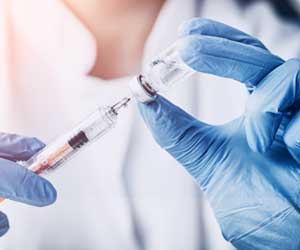Teens using crack or cocaine are at a higher risk of engaging in unprotected sex than youth who have never used these drugs, according to a study in Child and Adolescent Substance Abuse.
Teens using crack or cocaine are at a higher risk of engaging in unprotected sex than youth who have never used these drugs, putting themselves at increased risk for HIV, according to a study in the April issue of the Journal of Child and Adolescent Substance Abuse.
Researchers from the Bradley Hasbro Children's Research Center report that teens in psychiatric care who used crack and/or cocaine at least once were six times more likely to use condoms inconsistently, which was defined as "sometimes," "never" or "rarely." The findings suggest that crack cocaine appears to have more of an influence on risky teen behaviors than other factors, like alcohol and marijuana use, which are more routinely incorporated into adolescent HIV prevention interventions.The study is one of the first to look at the link between crack and cocaine use and HIV risk behaviors in adolescents. Previous research has demonstrated this association in adults.
"Unprotected sex is the most common way that HIV is transmitted among teens, so if we can develop a clearer picture of why some kids engage in high-risk sexual behaviors, we will be better prepared to educate them about safe sex," says lead author Marina Tolou-Shams, PhD, of the Bradley Hasbro Children's Research Center. "Our findings suggest that future HIV prevention interventions should include content specific to crack and cocaine use, just as they do with drugs that are more commonly used by teens, like alcohol and marijuana."
Overall, nearly 280 teens between the ages of 13 and 18 from therapeutic psychiatric day programs took part in the study. Participants exhibited a range of psychiatric diagnoses, including mood disorders, post-traumatic stress disorder and disruptive behavior disorders. More than half of all adolescents were male, and more than three-quarters were Caucasian. Approximately 13 percent of teens in the study reported trying crack or cocaine at least once.
After controlling for known adolescent HIV risk factors, such as gender, race, age and psychiatric status, researchers found that only 47 percent of teens with a history of crack and/or cocaine use said they used condoms "always or almost always." In addition, 15 percent of these adolescents have a history of sexually transmitted diseases (STD), nearly three-quarters reported using alcohol at least once and more than half indicated prior marijuana use.
In comparison, 71 percent of teens who never used crack or cocaine reported using condoms consistently.
Advertisement
"Our study clearly shows that youth in psychiatric treatment are using other drugs – and not just alcohol or marijuana – at high rates and that a history of drug use should alert clinicians to a wide variety of possible behavioral risks in their young patients," she adds.
Advertisement
The research is supported by grants from the National Institute of Mental Health and the Lifespan/Tufts/Brown Center for AIDS Research (CFAR).
Tolou-Shams is also an assistant professor of psychiatry at The Warren Alpert Medical School of Brown University. Study co-authors include Larry K. Brown, MD, and Nicholas Tarantino, BS, both from the Bradley Hasbro Children's Research Center and Alpert Medical School, and Sarah W. Feldstein Ewing, PhD, at the University of New Mexico.
Source-Eurekalert
THK










